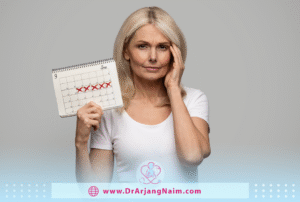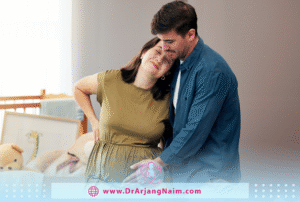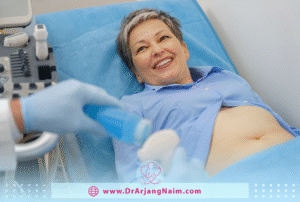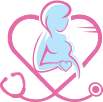A woman is born with all the eggs she’s supposed to have throughout her life. His eggs decrease in quality and quantity with age. Age is the most important factor affecting a woman’s fertility. Although good health increases the likelihood of pregnancy and a healthy baby, it does not ignore the effects of age on female fertility.
A woman in her early 20s has a 25 to 30 percent chance of pregnancy each month. Fertility usually begins slowly in the early 30s and slows down after 35 years of age. At the age of 40, the probability of pregnancy per month is about 5 %.
Many people have children at an older age for many reasons, such as a lack of readiness to support a child or not wanting to have children with their partner.
With age, pregnancy can be more challenging, and the risk of miscarriage increases. Although men are more fertile than women and children, their fertility also decreases with age because of the decrease in sperm quality.
Limited ovarian storage and a decrease in egg quality
Unlike men, who constantly produce sperm throughout their lives, women are born with a limited number of eggs in their ovaries. This ovarian storage during the growth of the fetus indicates the entire set of eggs that a woman will have throughout her life. At birth, this number can vary from one to two million. However, this storage is continuously reduced through a natural process, continuous destruction, and the loss of ovarian follicles, regardless of ovulation or external factors.
As a woman ages, the number of residual eggs gradually decreases. This decline is significantly accelerated in the mid-30s. When a woman reaches her late 30s and early 40s, her ovarian storage is significantly reduced. This slight decrease directly affects the possibility of fertilization, as fewer eggs are available for fertilization in each menstrual cycle.
In addition, the quality of female eggs also deteriorates with age. As the age increases, the integrity of the genetic material within the eggs is more exposed to error. This increase in the risk of chromosomal abnormalities, decreased fertilization, increased abortion rate, and increased risk of genetic disorders in children, such as Down Syndrome.

The impact on ovulation and the menstrual cycle
Increasing age affects the order and predictability of women’s menstrual cycle and ovulation. The hormonal balance that controls the menstrual cycle can be impaired by reducing ovarian storage and the quality of the egg. This can lead to the following:
- Shorter menstrual cycles: Some women may experience a shortening of their menstrual cycles as they approach the late 30s and 40s.
- Irregular ovulation: Ovulation may be more or less unpredictable, making the precise determination of fertility time for pregnancy more challenging.
- Luteal Failure: The luteal phase, the time between ovulation and menstruation, may be shortened, potentially preventing the fertilized egg from implanting.
- Increased risk of ovulation cycles: Cycles in which no eggs are released become more common with age.
These changes in ovulation and the menstrual cycle help reduce fertility.

Increased risk of pregnancy complications
Beyond pregnancy challenges, increased maternal age is also associated with increased risk of complications for the mother and the infant.
Abortion
The risk of spontaneous abortion increases significantly with the age of the mother, which is primarily due to more chromosomal abnormalities in older eggs.
Out -Of -Uterine pregnancy
This happens when the fertilized egg is implanted in the fallopian tube. The risk of ectopic pregnancy increases with age.
Pregnancy diabetes
Women who are highly pregnant are at greater risk of developing gestational diabetes, a condition that is characterized by high blood sugar levels during pregnancy.
Preeclampsia
This particular pregnancy disease includes hypertension and protein in the urine and is more common in older mothers.
Pairing and placing pairs
These complications of the placenta, which can lead to bleeding and other problems during pregnancy, are more common in older women.
Preterm birth
Older mothers have a slightly higher risk of their infants’ preterm labor.
Cesarean delivery
The likelihood of cesarean section increases as maternal age increases.
Deadness
The risk of death and the loss of the baby after 20 weeks of pregnancy increases in older mothers.
Chromosomal abnormalities in the infant
Chromosomal abnormalities, such as Down Syndrome, increase significantly as maternal age increases.
This increase highlights the importance of careful medical supervision and management of pregnancy in older women.

The impact of age on IVF outcomes
The age of women is an important factor affecting the success of laboratory fertilization (IVF). As women age, their fertility naturally reduces due to several key factors that directly affect IVF results.
Reduce the quantity and quality of the egg
Women are born with a limited number of eggs, known as ovarian storage. This storage naturally decreases over time, and older women have fewer residual eggs than younger women.
Reduce the quality of the egg
The quality of a woman’s eggs also decreases with age. Older eggs are more likely to have chromosomal abnormalities.
Impact on IVF methods
- Response to ovarian stimulation: Older women may respond less to ovarian stimulation during IVF. This can lead to less recovery of eggs.
- Embryo Quality: Due to the lower quality of the egg, the embryos obtained in older women are more likely to have chromosomal problems and lead to lower-quality embryos for transmission.
- Implantation Rates: Even with good-quality embryos, increasing maternal age can also reduce the fetus’s ability to implant in the uterine wall.
- Increased Miscarriage Risk: Even if pregnancy is through IVF, older women are more likely to have a miscarriage due to increased chromosomal abnormalities.
Other considerations
Biological age against calendar age: A woman’s “biological age,” which includes ovarian storage, hormone level, and overall fertility health, is often a better predictor for IVF success than her calendar age. Given the decrease in age-related fertility, many fertility specialists recommend that infertile women over the age of 35 consider IVF earlier.
For women who intend to delay childbearing, freezing eggs at an early age (ideally in the 20s or early 30s) can help maintain higher-quality eggs for future IVF efforts.
As a result, female age is a vital factor in IVF success. While IVF can help overcome many fertility challenges, it cannot completely reverse the natural reduction of the egg and the quality of aging eggs. Understanding these age-related factors is essential for women who consider IVF to have realistic expectations and make informed decisions on their fertility treatment options.

Factors other than age that reduce egg quality
In addition to age, several factors can negatively affect the quality of eggs in women.
Lifestyle factors
- Smoking: Smoking significantly damages the eggs and reduces their quality. The chemicals in cigarette smoke cause oxidative stress in the eggs and damage their DNA. Also, smoking can accelerate the aging process of the ovary.
- Excessive alcohol consumption: Excessive alcohol consumption can negatively affect the overall health of fertility and damage the quality of eggs.
- Obesity and weight loss can cause hormonal imbalances that affect ovulation and egg quality. It is important to maintain a healthy weight through a balanced diet and regular exercise.
- Inappropriate diet: A deficiency of essential nutrients, antioxidants, vitamins, and minerals can affect the health of eggs. A rich diet of fruits, vegetables, whole grains, and lean proteins is recommended.
- Stress: Chronic stress can disrupt hormonal balance and potentially affect the quality of the egg. Stress management through relaxation, exercise, and sleep techniques is important.
- Lack of sleep: Inadequate sleep can affect the production of hormones and indirectly affect the quality of the egg.
- Excessive caffeine intake: Consuming high amounts of caffeine may be associated with reduced egg quality.
Environmental factors
- Exposure to environmental toxins: Exposure to harmful chemicals, pesticides, heavy metals, and industrial pollutants can damage the eggs and reduce their quality.
- Radiation: Exposure to high radiation levels can damage the eggs’ DNA.
Medical conditions
- Polycystic ovary syndrome (PCOS): This hormonal disorder can affect ovulation and egg quality. Women with PCOS may have irregular ovulation, and their eggs may be of lower quality.
- Endometriosis: In this disease, tissue similar to the inner lining of the uterus grows outside the uterus. Endometriosis can damage the ovaries and reduce the quality of the egg.
- Early ovarian failure (POI): This condition occurs when the ovaries are disabled before age 40, leading to a decrease in the quantity and quality of the eggs.
- Autoimmune Diseases: Some autoimmune diseases can affect the ovaries and the quality of the egg.
- Genetic Disorders: Some genetic disorders can affect the growth and quality of the egg.
- Infections: Untreated pelvic infections can damage the reproductive organs and affect the quality of the egg.
- Medical Therapies: Some medical treatments, such as chemotherapy and radiation therapy, can damage the ovaries and reduce the quality of the eggs.
The bottom line
Age has a profound and multifaceted effect on women’s fertility. Natural decreased ovarian storage and egg quality, along with changes in ovulation and increased risk of pregnancy complications, significantly affect the ability of a woman to have a pregnancy and a healthy pregnancy with age. While fertility technologies offer valuable options, their success is also affected by maternal age.
Additional questions
- How to improve egg quality?
Improving egg quality focuses on nurturing egg health over a 3-month maturation cycle. Key strategies include:
- Nutrient-Rich Diet
- Manage Stress
- Healthy Lifestyle
- Targeted Supplements
- What destroys egg quality?
What primarily damages egg quality are:
- Age
- Oxidative Stress
- Lifestyle Choices
- Medical Conditions
- Environmental Toxins
- How do you conceive fast?
To get pregnant quickly, prioritize timing sex during a woman’s fertile window, which can be identified using ovulation predictor kits, basal body temperature charting, or by observing changes in cervical mucus. During this period, have sex daily or every other day, as sperm can survive for several days. At the same time, both partners should optimize their overall health by maintaining a healthy weight, eating a nutritious diet, avoiding smoking, excessive alcohol, and recreational drug use, and managing stress effectively.
- What are the signs of good egg quality?
One potential indicator of egg quality is having regular, predictable menstrual cycles. A cycle that is consistently between 21 and 35 days long indicates that your hormones may be balanced and your ovaries are functioning properly.
- How many eggs do you lose per period?
Although only one egg is usually released per cycle, a woman loses hundreds to over a thousand immature eggs from a developing group during the same cycle due to a natural selection process called atresia.
References
https://www.betterhealth.vic.gov.au/health/conditionsandtreatments/age-and-fertility
https://hertilityhealth.com/blog/how-ageing-can-affect-fertility-rate-in-women




